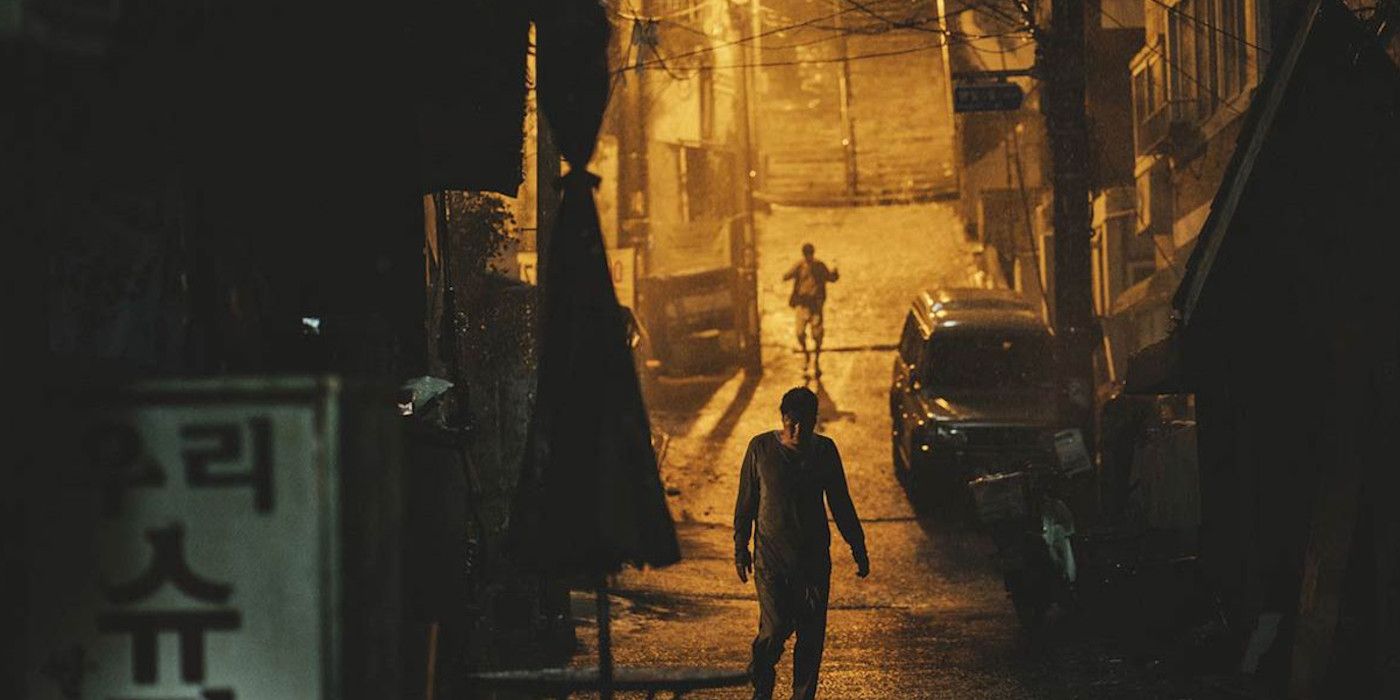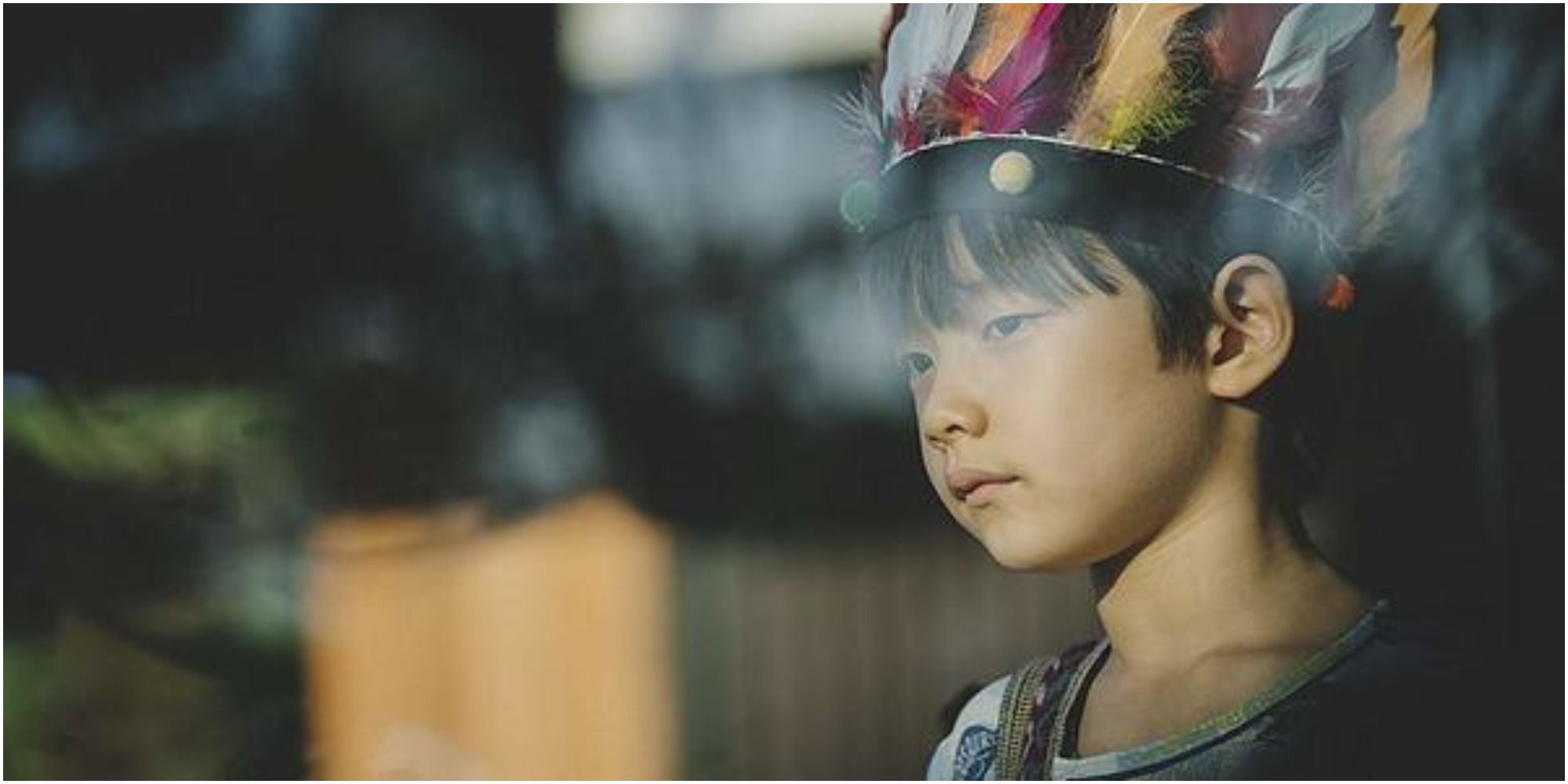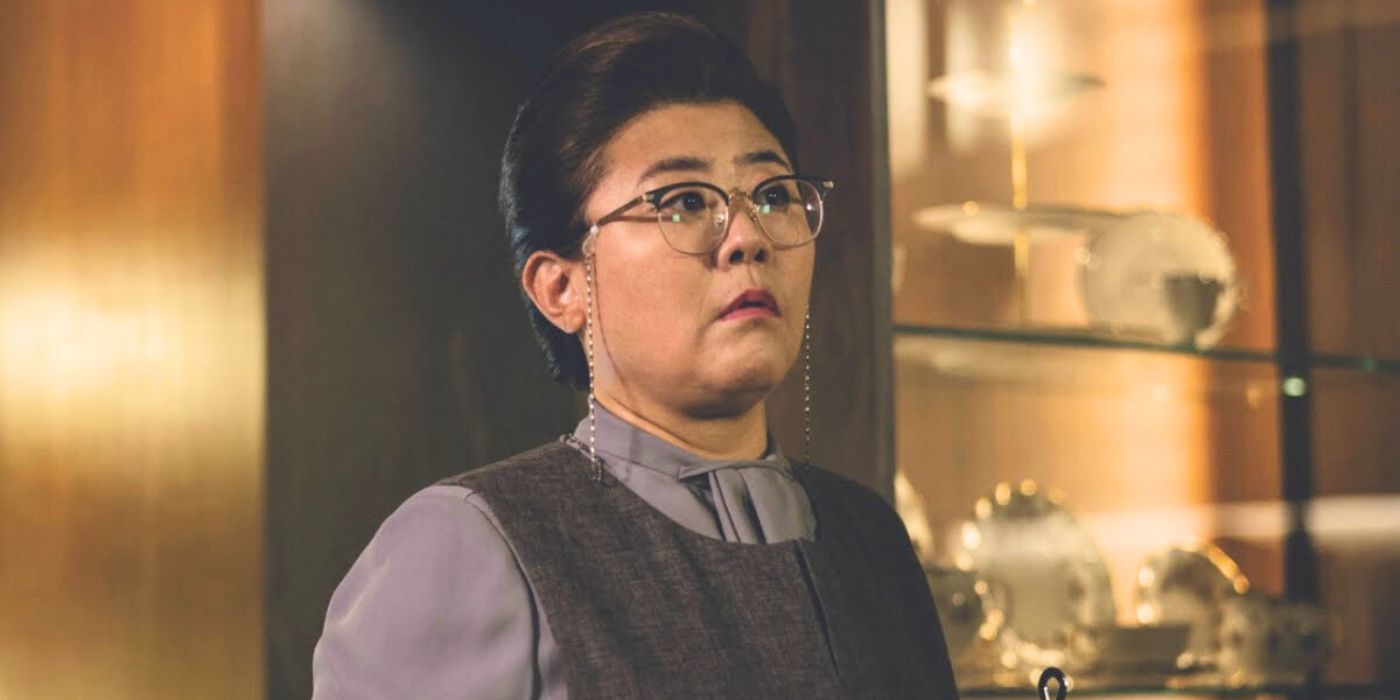Bong Joon-ho’s Parasite is a darkly funny movie that critics, audiences, and the director himself have spent ample time attempting to explain and unravel. Despite only coming out less than ten years ago, Parasite has already made a name for itself not just as one of Bong Joon-ho’s best movies, but one of the best movies of the 21st century. It was included as number 90 in the 2022 Sight and Sound poll of the greatest movies of all time, and it went four for six at the 92nd Academy Awards, winning Best Picture and Best Director.
Almost a full-on comedy at some points, Parasite effortlessly blends humor and horror for a movie that feels incredibly real and honest. It’s an accurate reflection of life, particularly a certain kind of life, with all its pain, fear, and occasional bursts of happiness. The film centers on two families: the wealthy Parks and the desperately poor Kim family. Seeing a chance to rise above his station in life, Kim Ki-woo (Choi Woo-shik), the family’s son, inserts himself and his family into the Parks’ life. Together, the Parks and Kims discover the edges of inequality and find something devastating there.
Parasite Is Filled With Ideas About Class, Wealth, And Social Inequality
The Kim And Park Families Are Both Harmed By Inequality
Parasite is packed with images, lines, ideas, and themes about the sorts of inequalities people face, even in developed countries like South Korea. Class struggle is at the center of a movie like Parasite, and Bong is wise enough to craft a film that considers all sides. The Parks are insulated and naive, while for the Kims, even things that seem like minor conveniences can spell doom. When it rains toward the end of the film, the Kim’s home is destroyed. The next day, Park mother Choi Yeon-gyo (Cho Yeo-jeong) comments on how beautiful it is the day after rain.
At the same time, the Parks don’t really do much that could be considered villainous. They are not mustache-twirling rich socialites who make the Kim’s lives a living hell. If anything, they improve their lives. It’s the Kims who keep taking and taking from the family. There is a complex point made by Bong in Parasite, and it’s not that the poor are good, and the rich are bad. The point is that this type of inequality is ultimately harmful to everyone involved. The rich, like the Parks, lose sight of themselves. They forget how to cook and drive and misinterpret danger right at their door.
By the end of Parasite, the violence that class inequality foments is out in broad daylight for everyone to see, and no one is protected.
The Kim family is more immediately harmed by the situation and more relatable for it. Everything is a struggle. Even going home is a struggle, climbing down steps to get to their homes, going deeper and deeper until they are nearly underwater. It’s a life-and-death fight for the Kims and, without recourse, they bring this struggle to the Parks, who once thought themselves insulated. By the end of Parasite, the violence that class inequality foments is out in broad daylight for everyone to see, and no one is protected.
What Bong Joon-ho Has Said About The End Of Parasite
Bong Sees Parasite As A Work Of Cinema And Not Propaganda
There are several motifs in Parasite that help drive Bong Joon-ho’s thesis and the director has pointed to stairs as one of these recurring themes, calling Parasite his “stairway movie“ (via Vulture). Parasite is indeed filled with stairways, from the never-ending steps that lead from the Parks down to the Kims, to the stairs hidden behind a closet that leads down to Oh Geun-sae (Park Myung-hoon). Where someone lives, atop the stairs, or at the bottom, determines their social standing in Bong’s movie.
When it comes to the ending of Parasite, a dream sequence where Kim Ki-woo imagines himself working hard, getting rich, and eventually buying the Park’s house to save his father, Kim Ki-taek (Song Kang-ho), Bong says he thought ending on a cruel but honest reality made the most sense for the film,
“Maybe if the movie ended where they hug and fades out, the audience can imagine, ‘Oh, it’s impossible to buy that house,’ but the camera goes down to that half-basement. It’s quite cruel and sad, but I thought it was being real and honest with the audience. You know and I know — we all know that this kid isn’t going to be able to buy that house. I just felt that frankness was right for the film, even though it’s sad.”
Bong understands the wish fulfillment both the audience and people in poverty may imagine, but he also knows how unreachable those dreams can be for some people. Though he ends Parasite on a dour note, it’s the right note, and it doesn’t betray the story that came before. If he had ended the film with Kim Ki-woo solving all his problems and escaping poverty, it would have rendered the rest of the film inconsequential.
What Bong didn’t want to do was make some grand statement on how to change society. He sees himself as a filmmaker first and foremost and while he sympathizes and supports the work done by those fighting for change, the first goal of Parasite was always to make the audience feel,
“There are people who are fighting hard to change society. I like those people, and I’m always rooting for them, but making the audience feel something naked and raw is one of the greatest powers of cinema. I’m not making a documentary or propaganda here. It’s not about telling you how to change the world or how you should act because something is bad, but rather showing you the terrible, explosive weight of reality. That’s what I believe is the beauty of cinema.”
Bong just shows the world the reality as he sees it. If that reality is alarming and unfair, then that’s a statement on the world, not on Bong.
Colonialism And Imperialism Are More Key Themes Of Parasite
The Parks Like To Pretend To Be Native Americans
Such a powerful and effective movie as Parasite does not just play around one theme. There are multiple throughlines in the film, including a notable critique of imperialism and colonialism, particularly within an American context. It is no coincidence that the Park’s son, Park Da-song (Jung Hyeon-jun) and Park father, Park Dong-ik (Lee Sun-kyun), both enjoy dressing up as stereotypical Native Americans while they play. Parasite can be read as a metaphor for the invasion of the Americas by colonists and the displacement of the Native Americans.
Bong Joon-ho says about that reading (via EW),
“I wouldn’t go so far as to say it’s a commentary on what happened in the United States, but it’s related in the sense that this family starts infiltrating the house and they already find a family living there. So you could say it’s a joke in that context.”
It’s a tongue-in-cheek allusion because the Park family isn’t “native” to their home, but the “colonizer” Kims do use similar tactics to those used by people coming to the new world. They get the “natives” sick, sprinkling peach dust on Gook Moon-gwang (Lee Jung-eun), they eat their food and drink, they begin relationships with the natives, and they bring their culture and scents to this new world where they are unwelcome.
Tuberculosis, the disease the Kims accuse Gook Moon-gwang of having, is one of the major diseases brought to the New World by Europeans (via PMC).
Parasite knows the deep history of the Parks is in no way similar to the pre-Columbus cultures of America. Bong says,
“But at the same time, the Native Americans have a very complicated and long, deep history. But in this family, that story is reduced to a young boy’s hobby and decoration. [The boy’s mother] mentions the tent as a U.S. imported good, and I think it’s like the Che Guevara T-shirts that people wear. They don’t know the life of the revolutionary figure, they just think it’s a cool T-shirt. That’s what happens in our current time: The context and meaning behind these actual things only exists as a surface-level thing.”
Everyone in Parasite is a parasite. The Kims are parasites of the Parks and the Parks are parasites of the Kims, and whatever else they can get their hands on. They use the Kims for their technical know-how, and they use the story of Native Americans for a birthday party.
Parasite Explores The Need For Working Class Solidarity
The Kims And Gook Moon-gwang Are Immediately At Odds
Working class solidarity is also a major theme in Parasite. It would behoove the Kims and Gook Moon-gwang and Oh Geun-sae to band together and survive with each other’s help. Instead, they turn on one another, devouring each other’s chances of survival and stability. Both Gook Moon-gwang and the Kims are in the same position, desperate for wealth and safety.
There is a moment in Parasite where they could have worked together to protect one another, but they attack each other instead. It’s a sinister effect of inequality and instability. Those who would be better off taking care of each other, instead, step on other’s heads, just as their own heads have been stepped on.








